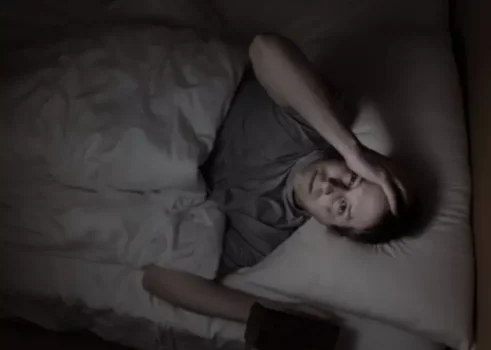
Mild symptoms may progress to alcohol hallucinosis, characterized by visual or auditory hallucinations that usually subside within 48 hours after alcohol cessation. Withdrawal seizures can occur in patients within just a few hours of alcohol cessation. Alcoholics Anonymous® (also known as “AA”) and other 12-step programs provide peer support for people quitting or cutting back on their drinking.

Attend a 12-step Program or Alcoholics Anonymous (AA)
The counselor provides information about the individual’s drinking pattern and potential risks. After the individual receives personalized feedback, the counselor will work with them to set goals and provide ideas for helping to make a change. Many people struggle with controlling their drinking at some point in their lives. Millions of adults in the United States have alcohol use disorder (AUD), and approximately 1 in 10 children live in a home with a parent who has AUD. Because denial is common, you may feel like you don’t have a problem with drinking. You might not recognize how much you drink or how many problems in your life are related to alcohol use.

How Much Do I Have to Drink to Experience Withdrawal?
Alcohol withdrawal syndrome can range in severity from mild to fatal, making it crucial for patients to present to care for evaluation of their symptoms. Patients who have had prior complicated withdrawals should not attempt to decrease their alcohol intake without consultation with their healthcare team. If a patient begins experiencing signs and symptoms of severe withdrawal, including but not limited to seizure, altered mental status, or agitation, they should seek emergency care immediately.
What is the prognosis for someone with alcohol withdrawal?
This is because alcohol is a costly habit, so giving it up can free up some extra cash. Another benefit of giving up alcohol is that your mind may be clearer. This is because alcohol can cause changes in brain chemistry, which can lead to cognitive problems. Along with anxiety and irritability, you may also experience mood swings when you give up alcohol.

One of the unexpected benefits of giving up alcohol is that you may find yourself more productive than before. This is because alcohol can cause fatigue and decreased motivation, so when you stop drinking, you may find https://ecosoberhouse.com/ it easier to get things done. It is worth mentioning that nutritional status improvement occurs when someone strop drinking, which is one big reason why people may see many of the above improvements with sobriety.
How much alcohol is okay to drink?
This is because alcohol can cause depression, anxiety, and other mental health problems. Drinking alcohol can contribute to a variety of cognitive issues, including poor memory, slow reaction time, impaired impulse control, and poor concentration. Over time, drinking can also damage nerve cells and contribute to a loss of brain volume. Fortunately, reducing your alcohol use can help improve your sleep over time, although you might experience more sleep disturbances for some time after you quit. “Furthermore, consistent use of alcohol to induce sleep only increases the need to use alcohol in the future to get to sleep,” he explains. The brain also begins to repair some of the damage and shrinkage you may have experienced while drinking.
- The main management for severe symptoms is long-acting benzodiazepines — typically IV diazepam or IV lorazepam.
- Pre-existing mental health conditions can sometimes lead people to turn to alcohol to cope with their symptoms.
- A health care provider can look at the number, pattern, and severity of symptoms to see whether AUD is present and help you decide the best course of action.
- At the end of the day, one of the most important tools you have at your disposal is self-compassion.
Dietary guidelines recommend that if you drink, men limit daily drinking to two drinks or less per day and women limit their drinking to one drink or less per day. Consuming more than that can lead to liver damage and heart disease, and increase your risk for some cancers. Many involve a combination of group psychotherapy (talk therapy) and medications. Symptoms of alcohol withdrawal tend to peak 24 to 72 hours after your last drink. Alcohol detoxification is a process that many people undergo as the first step on their journey to sobriety. If you need to decide whether to pursue detox, you may be wondering exactly what to expect in treatment.
Treatment for alcohol use disorder can vary, depending on your needs. Treatment may involve a brief intervention, individual or group counseling, an outpatient program, or a residential inpatient stay. Working to stop alcohol use to improve quality of life is the main treatment goal. The main ways to prevent alcohol withdrawal are to avoid alcohol altogether or to get professional help as soon as possible if you think you’re developing alcohol use disorder. For mild alcohol withdrawal that’s not at risk of worsening, your provider may prescribe carbamazepine or gabapentin to help with symptoms. If your blood pressure, pulse, or body temperature rises, or if you have more serious symptoms like seizures and hallucinations, seek medical care immediately (dial 911).
- In order for treatment to work, the person with an alcohol addiction must want to get sober.
- Many people struggle with controlling their drinking at some point in their lives.
- This is because alcohol can cause dehydration, which can lead to dry, dull skin.
- Maybe you’ve never been interested in logging your innermost thoughts, but journaling can be a great tool to track your feelings as you work on quitting alcohol.
- This may be more pronounced if you often use alcohol as a way to manage existing sleep problems.
- Gradually tapering your alcohol use helps ease withdrawal symptoms and reduce alcohol cravings.
- It is intended as a resource to understand what treatment choices are available and what to consider when selecting among them.
- Alcohol withdrawal syndrome is a clinical condition that may arise following the cessation or reduction of regular, heavy alcohol consumption.
A small percentage of people going through alcohol withdrawal have hallucinations at this point. Doctors may prescribe other medications to treat withdrawal-related symptoms. One example is a beta-blocker (such as propranolol) to reduce high blood pressure. As with other addictions, Alcohol Detox alcohol dependency can negatively affect a person’s life. At the end of the day, one of the most important tools you have at your disposal is self-compassion. Instead of criticizing yourself for having a hard time or slipping up and having a drink, remember that no one’s perfect.
Who Experiences Alcohol Withdrawal Symptoms?

Following successful completion of detox, an inpatient or outpatient rehabilitation program may be recommended to allow further work toward recovery and relapse prevention. Behavioral health treatment for alcohol problems is often (but not always) covered by insurance. In the United States, most states have low-cost or free rehabilitation programs for those who are uninsured. Research shows people who have a supportive social network are more likely to remain alcohol-free after withdrawal.

